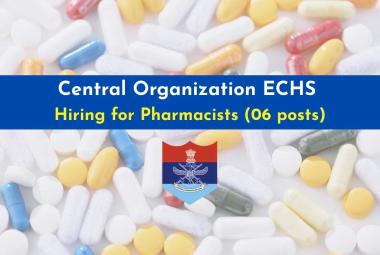Planning a family is one of the most important aspects of life. But, in this modern age, planning for a baby comes with lot of challenges for many. Couples these days prefer good planning before they conceive. They wish to be financially sound, have essential assets in place and always have a backup in case things don’t go as planned. Baby planning starts with fertility evaluation which involves history and physical examination, lab testings, transvaginal ultrasound, semen analysis and hysterosalpingogram. Fertility evaluation should be an essential step to determine a woman’s or a man’s fertility status. In 2017, U.S recorded its lowest birth rate in last 30 years. Millennials, people born from 1981 to 1996 are being blamed for the same and the most talked about reasons are waiting too long for marriage, financial concerns and career plans. This has driven an added fear among people for infertility. But, as much as this concept is talked about, the treatment for the same is talked about more. With the advancements in medical science, couples that face fertility issues can receive the best of treatments which fetch results. Speaking about millennials and the things they have to listen to, here are some of the most common causes of infertility.
Age: It is believed that as a woman grows older her egg number decreases and also the quality and capacity of it. With changing times and priorities, the age to get married as well as to have a child has also changed. Woman prefer having a child in their 30’s and 40’s now. But, we cannot deny the fact that as age increases the possibility or chances of conceiving also decrease and beyond a certain age, infertility increases thus, age is an important factor when it comes to infertility.
Infrequent Ovulation: Irregular periodic cycle affects ovulation in women. Sometimes indirectly related problems and ailments can also affect ovulation which is very important for women to conceive a baby. Some of the common problems that affect ovulation in women is polycystic ovary syndrome (PCOS) and insufficient ovaries. Early checkups and examination can help detect and solve these issues.
Uterine cysts: Uterine cysts are noncancerous and can be present inside or outside of the uterine wall. Uterine cysts and fibroids can cause excruciating pelvic pain and infection. It also causes heavy bleeding intensely affecting a woman reproductive system and her chances to get pregnant.
Affected Sperms: Out of all the infertility cases recorded at least 15% are caused due to affected sperms. The reason responsible for this is mostly unusual or abnormal semen. A semen analysis test can evaluate a man’s sperm quantity, sperm structure and semen volume. Few lifestyle changes or treatments can cure these issues.
Apart from the above listed causes, sometimes there are reasons to infertility that do not have an explanation. But, some treatments help overcome these unknown reason as well. Once the causes of infertility are clear, couples can opt for various infertility treatments suggested by their doctors. Treatments are only prescribed after a thorough fertility evaluation and taking into consideration a couple’s lifestyle, time and financial concerns. Infertility treatments have undergone drastic result driven improvisation and hence, couples fetch desired results. Here is a brief overview of the most commonly used treatments to treat infertility.
1. Drugs
Infertility might come across as a complex subject but in many cases simple drugs do wonders. In fact, almost 80% infertility cases are treated with drugs. Some of the most commonly prescribed drugs are, Clomid, gonadotropins and Femara. The main function of these drugs is stimulating ovulation. In 80% of the cases, these drugs can stimulate ovulation. Due to this reason they are also used in IUI and IVF treatments. Out of the above mentioned drugs, Clomid is the most common one and the most effective. Gonadotropins are commonly prescribed to stimulate luteinizing hormone (LH) and follicle-stimulating hormone (FSH) necessary for normal reproduction. As far as Femara or Letrozole is considered, it works for women but also works in cases with male infertility. Some other drugs used for such treatments are progesterone, metformin and birth control pills. They might not be used directly for ovary stimulation but are used in different stages of infertility treatment.
2. IUI (Intrauterine Insemination)
Also called as artificial insemination, IUI does not have a very high success rate. It is not more than 20%. In intrauterine insemination only viable and active sperms are carefully place in a woman’s uterine cavity. Pregnancy chances with IUI decreases with age and it is mostly not suggested to women above 40 years of age. IUI is also an attractive option because it is cheaper than IVF. An IUI treatment is not possible without fertility drugs.
3. IVF (In vitro fertilization)
Couples opt for in vitro fertilization only when it is their last option. IVF might seem a common term but very less number of couples opt for it. In IVF the egg and sperm are fertilized in an incubator outside and then transferred back into the woman’s uterus. A woman may take 8-10 weeks to get pregnant after the transfer. IVF is a multi-stage process, it involves steps like ovary stimulation, hormonal injections and finally placing of eggs. IVF also come with some side effects like abdominal swelling and fluid built up but, it becomes all worth it with the arrival of a baby.
4. Surgery
Surgeries are done in case of abnormalities. Most common surgical procedures are hysteroscopy, abdominal myomectomy and laparoscopy. Hysteroscopy is done with the help of hysteroscope. It is the inspection of the uterine cavity. Laparoscopy is done to inspect abnormalities like endometriosis, or a damaged fallopian tube.
5. Third party reproduction:
In this procedure a third person provides sperm or eggs or where another woman acts as a gestational surrogate. Some of the types of third party production are: sperm donation, egg or ovum donation, gestational surrogacy or embryo donation. In the past few years surrogacy has outpaced IVF treatments.
Accepting infertility and the treatments is increased as much as much as the rate of infertility. As medical science is advancing, infertility treatments are also getting new hopes for survival and being successful.
- Adroit Market Research
NOW YOU CAN ALSO PUBLISH YOUR ARTICLE ONLINE.
SUBMIT YOUR ARTICLE/PROJECT AT editor-in-chief@pharmatutor.org
Subscribe to Pharmatutor Alerts by Email
FIND OUT MORE ARTICLES AT OUR DATABASE









